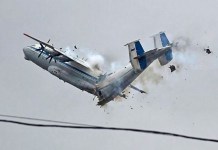The sudden activation of engines of Russia’s Nauka multipurpose laboratory module at the International Space Station (ISS) was triggered by a software failure that was quickly fixed, Russia’s ISS segment chief, Vladimir Solovyov, explained on Friday.
“The mechanic aspect of the docking was reliable, without any remarks registered. This resulted in the closure of both docking mechanisms: the station and the module. Due to a short-term software failure, a direct command was mistakenly executed to turn on the module’s engines for withdrawal, which entailed some modification of the orientation of the complex as a whole,” Solovyov said.
This was quickly fixed by engines of Russia’s Zvezda module, the official recalled.
“At the moment, the station is in its normal orientation, all the ISS and multipurpose laboratory module systems are operating normally. A reliable internal power and command interface was created, as well as a power supply interface, which connected the module to the station,” Solovyov said.
Meanwhile, 86th NASA Flight Director Zebulon Scoville said that the International Space Station (ISS) could make a more than 45-degree turn following the unscheduled activation of Russia’s Nauka module engines, these were only preliminary calculations, on Friday.

“Was force fight between MLM [multipurpose laboratory module] and ISS SM [service module] thrusters. Based upon moment arm, the ISS brought a knife to a gunfight. Reports of ISS only being 45 degrees out were premature. That was the first call from ADCO [attitude determination and control officer]. We proceeded to do headstands and cartwheels. Olympic judges would be proud,” Scoville wrote on Twitter.
Additionally, Russian cosmonauts on the International Space Station (ISS) may temporarily move to the US segment so that the fuel system of the docked Nauka module can be safely fixed, follows from the crew’s talks with the Earth command center as broadcast by NASA.
Cosmonaut Oleg Novitsky asked a specialist from the Russian mission control center near Moscow to negotiate with the American side whether the Russian crew could temporarily move to the US segment of the ISS on Friday while the fuel system of the Nauka module is brought to a safe state by purging its fuel pipes with helium.
On Thursday, the module successfully docked to the ISS, after 14 years of waiting on the Earth and eight days of orbital flight. Later, Russian cosmonauts told ground specialists that Nauka’s engines had unexpectedly activated.
This led to a change in the position of the station, and the ISS engines had to be switched on in order to compensate for the operation of the Nauka engines. Nauka is the first Russian module sent to the station in 11 years.




